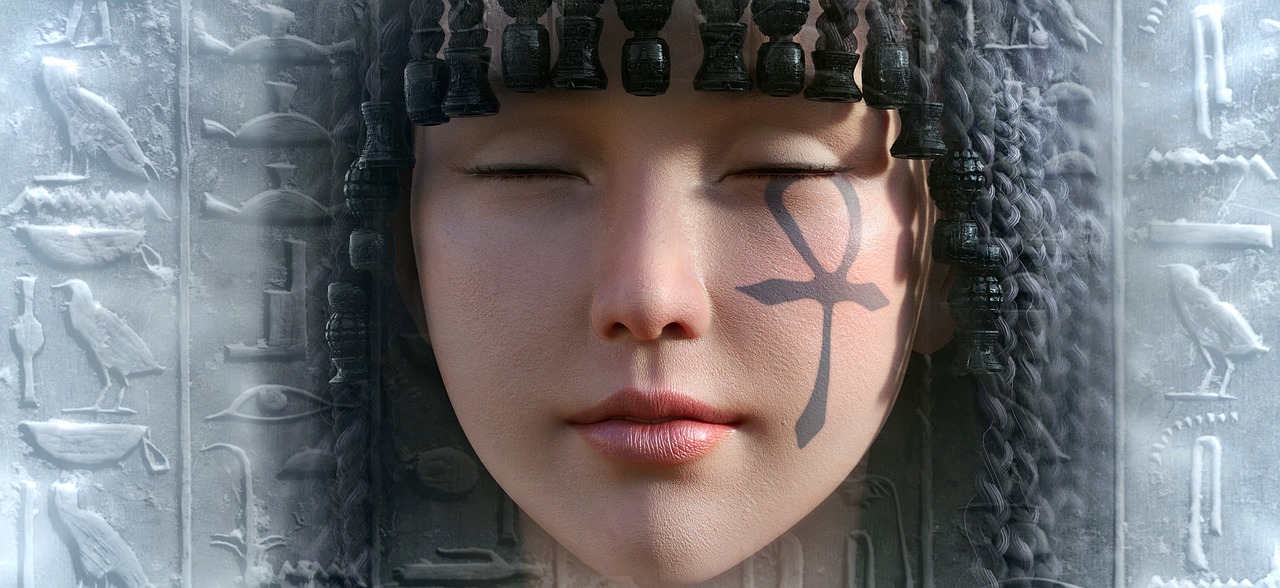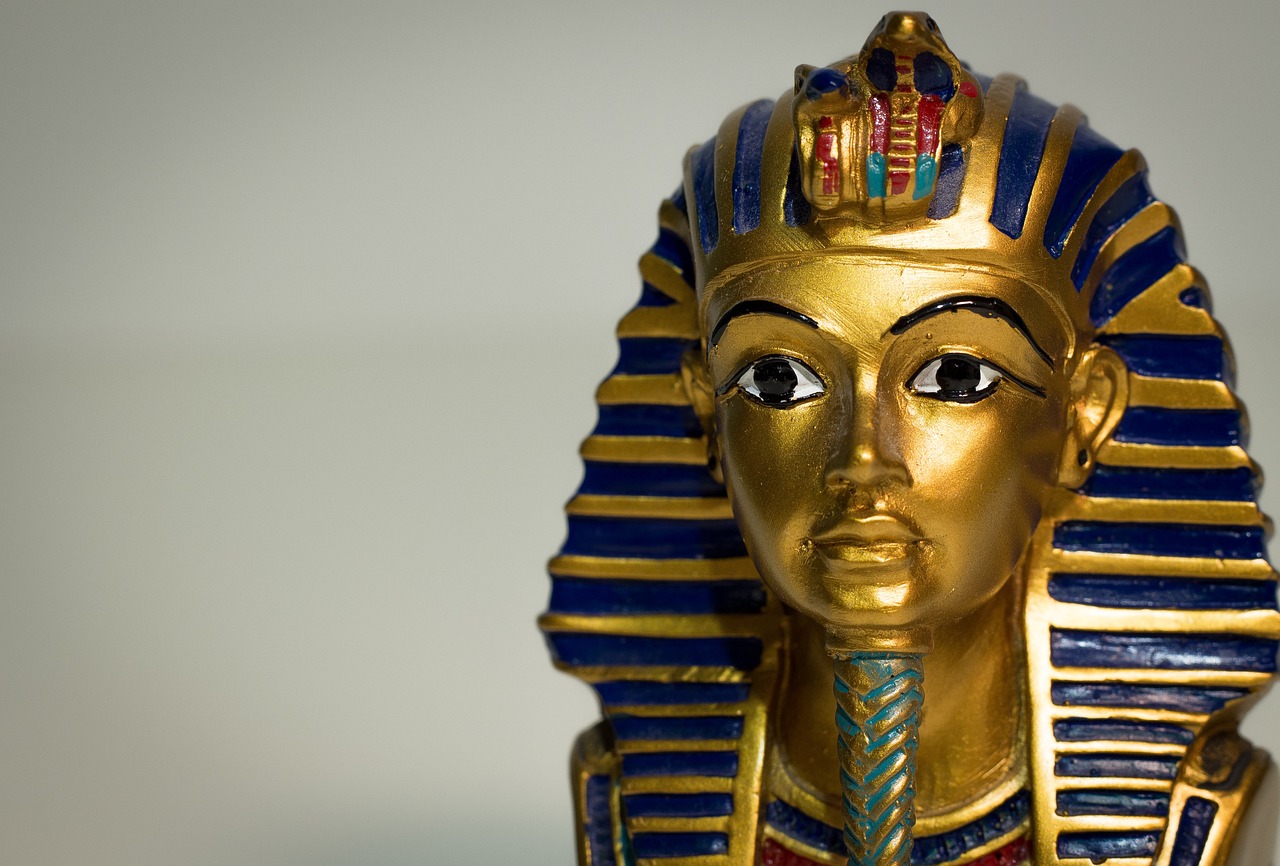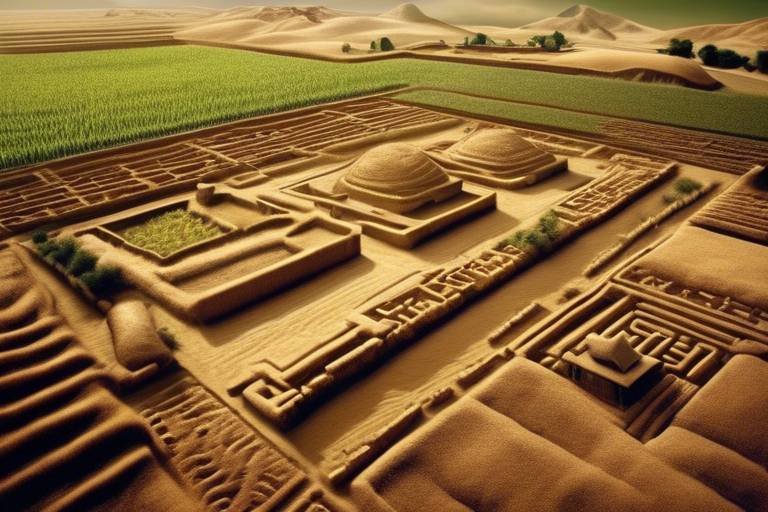The Secrets of Ancient Egyptian Medicine and Healing
Ancient Egyptian medicine and healing practices have long been shrouded in mystery and intrigue, captivating the minds of historians and modern-day medical professionals alike. The secrets of this ancient civilization's approach to health and well-being offer a fascinating glimpse into a world where herbs, rituals, and divine intervention played a crucial role in healing the sick.
Herbal remedies were at the core of ancient Egyptian medicine, with physicians harnessing the power of various plants and herbs to treat a wide range of ailments. From soothing stomach pains to performing complex surgical procedures, these healers demonstrated a deep understanding of the medicinal properties of nature.
Delving deeper into the medical practices of ancient Egypt reveals a sophisticated array of tools and techniques used by physicians. Surgical instruments, dental tools, and diagnostic methods showcased their advanced knowledge and skill in providing medical care to the community.
However, healing in ancient Egypt was not merely a physical endeavor but also a spiritual one. Magical and ritualistic practices were integral to the healing process, with rituals, spells, and amulets believed to possess mystical healing properties that could cure the afflicted.
The structured healthcare system of ancient Egypt was a testament to the collaborative efforts of physicians, priests, and healers working together to ensure comprehensive medical care for the population. This holistic approach to health emphasized the interconnectedness of the body, mind, and spirit.
Women played a significant role in ancient Egyptian medicine, breaking gender norms as midwives, nurses, and even physicians. Their contributions to the field of healthcare highlighted the inclusive nature of healing practices in this ancient civilization.
Examining the medical papyri of ancient Egypt, such as the Ebers Papyrus and Edwin Smith Papyrus, provides valuable insights into the medical knowledge and practices of the time. These ancient texts offer a glimpse into the diagnoses, treatments, and surgical procedures performed by ancient Egyptian physicians.
Divine healing practices were deeply ingrained in ancient Egyptian culture, with gods and goddesses believed to play a significant role in the healing process. The concept of divine intervention for healing underscored the spiritual beliefs that guided medical treatment in this ancient civilization.
The legacy of ancient Egyptian medicine continues to influence modern healthcare practices and alternative healing modalities today. The innovative approaches to healing, the emphasis on holistic well-being, and the integration of spiritual beliefs into medical care all contribute to the enduring impact of this ancient civilization on the field of medicine.

Herbal Remedies
Exploring the fascinating world of ancient Egyptian medicine and healing practices, including the use of herbs, rituals, and medical tools that were ahead of their time.
Herbal remedies played a crucial role in ancient Egyptian medicine, where the use of herbs and plants was extensive and varied. From treating common ailments to performing complex surgical procedures, ancient Egyptian physicians relied heavily on the healing properties of nature.
One of the most renowned herbs used in ancient Egyptian medicine was garlic, known for its antibiotic properties and ability to treat infections. Additionally, aloe vera was commonly used for its soothing and healing effects on the skin, making it a staple in treating burns and wounds.
Ancient Egyptian healers also utilized opium poppy for pain relief and mandrake root for its sedative properties. These herbal remedies were often combined with rituals and prayers to enhance their efficacy in healing the sick.
Moreover, the ancient Egyptians were skilled in creating herbal mixtures and ointments for various purposes, such as honey-based concoctions for coughs and sore throats, and myrrh-infused oils for embalming and wound healing.
The knowledge of herbal remedies in ancient Egyptian medicine not only reflected their understanding of the natural world but also demonstrated their innovative approach to healthcare, laying the foundation for future medical practices.

Medical Tools and Techniques
Exploring the fascinating world of ancient Egyptian medicine and healing practices, including the use of herbs, rituals, and medical tools that were ahead of their time.
Discover the extensive use of herbs and plants in ancient Egyptian medicine, from treating common ailments to performing complex surgical procedures.
Uncover the advanced medical tools and techniques used by ancient Egyptian physicians, showcasing their proficiency in surgery, dentistry, and more. The ancient Egyptians were pioneers in medical innovation, utilizing tools such as scalpels, forceps, and surgical needles to perform intricate surgeries. They also developed techniques for setting broken bones and treating various ailments with remarkable precision.
Explore the mystical aspects of healing in ancient Egypt, where rituals, spells, and amulets were believed to have powerful healing properties.
Learn about the structured healthcare system in ancient Egypt, where physicians, priests, and healers worked together to provide comprehensive medical care.
Delve into the role of women in ancient Egyptian medicine, as midwives, nurses, and even physicians, breaking gender norms in the field of healthcare.
Examine the medical papyri of ancient Egypt, such as the Ebers Papyrus and Edwin Smith Papyrus, which contain valuable insights into medical knowledge and practices.
Understand how ancient Egyptians believed in divine intervention for healing, with gods and goddesses playing a significant role in the medical treatment of the sick.
Discover how the medical practices of ancient Egypt have influenced modern medicine and continue to inspire alternative healing modalities today.
Stay tuned for the frequently asked questions section at the end of this article for more insights into ancient Egyptian medicine and healing practices.

Magical and Ritualistic Healing
When delving into the realm of ancient Egyptian medicine, one cannot ignore the mystical and ritualistic aspects of healing that were deeply ingrained in their practices. The ancient Egyptians believed in the power of magic and rituals to aid in the healing process, alongside more conventional medical treatments.
Magical healing rituals often involved the recitation of spells and the use of amulets believed to possess protective and healing properties. These rituals were performed by specialized healers who had a deep understanding of the spiritual and supernatural forces that influenced health and well-being.
Furthermore, the ancient Egyptians also turned to their gods and goddesses for healing assistance. Deities such as Isis, Thoth, and Sekhmet were associated with healing and were invoked through prayers and offerings to intercede on behalf of the sick. The belief in divine intervention as a crucial element of the healing process highlights the spiritual connection that ancient Egyptians had with their healthcare practices.
These magical and ritualistic healing practices were not just about physical remedies but also about addressing the spiritual and emotional well-being of the individual. The holistic approach to healing in ancient Egypt encompassed the body, mind, and soul, recognizing the interconnectedness of all aspects of health.
Overall, the magical and ritualistic healing practices of ancient Egypt offer a fascinating glimpse into a world where medicine and spirituality were deeply intertwined, showcasing a unique approach to healthcare that blended the physical with the metaphysical.

Healthcare System
The healthcare system in ancient Egypt was a well-organized structure that integrated various healthcare professionals to provide comprehensive medical care to the population. Physicians, priests, and healers worked together in a collaborative manner, blending medical knowledge with spiritual beliefs to treat and heal the sick.
Physicians in ancient Egypt were highly respected and well-trained individuals who specialized in different fields of medicine, such as surgery, gynecology, and dentistry. They utilized a combination of empirical observations and mystical beliefs to diagnose and treat illnesses. Priests played a significant role in healthcare, as they believed that diseases could have spiritual causes and required divine intervention for healing.
Healers, including midwives and nurses, also played crucial roles in the healthcare system. Women were actively involved in healthcare, breaking gender norms by serving as midwives and even physicians. They possessed knowledge of herbal remedies and practical medical techniques, contributing to the overall well-being of the community.
The healthcare system in ancient Egypt was not only focused on treating illnesses but also on preventive care. Physicians emphasized the importance of maintaining a healthy lifestyle, proper hygiene, and balanced diet to prevent diseases. They believed in the holistic approach to health, considering the physical, mental, and spiritual aspects of an individual.
Ancient Egyptian medical facilities, such as temples and medical centers, served as hubs for healthcare delivery. Patients would visit these centers seeking treatment, where they would be examined, diagnosed, and prescribed various treatments, including herbal remedies, surgeries, and magical rituals.
Overall, the healthcare system in ancient Egypt was a harmonious blend of science, spirituality, and practicality, showcasing the advanced medical knowledge and holistic approach to healing that continues to intrigue and inspire modern healthcare practices.

Women in Medicine
Exploring the fascinating world of ancient Egyptian medicine and healing practices, including the use of herbs, rituals, and medical tools that were ahead of their time.
In ancient Egypt, women played a significant role in the field of medicine, challenging traditional gender roles and contributing immensely to healthcare. Women served as midwives, nurses, and even physicians, breaking barriers and showcasing their expertise in healing practices.
One notable example is Merit-Ptah, who is believed to be the first female physician known by name. She was honored with the title "Chief Physician" during the reign of Pharaoh Djoser in the 27th century BCE, demonstrating the respect and recognition women received for their medical skills.
Women in ancient Egyptian medicine were highly respected for their knowledge of herbs, childbirth practices, and healing techniques. They played a crucial role in caring for the sick, assisting in surgeries, and providing emotional support to patients during their healing journey.
Moreover, women in medicine were involved in training future generations of healers, passing down their wisdom and expertise to ensure the continuity of healthcare practices. Their dedication and contributions have left a lasting impact on the history of medicine in ancient Egypt.
1. How did ancient Egyptian women contribute to the field of medicine?
Ancient Egyptian women made significant contributions to medicine as midwives, nurses, and even physicians, challenging traditional gender norms and showcasing their expertise in healing practices.
2. Who was Merit-Ptah, and why is she significant in the history of medicine?
Merit-Ptah is believed to be the first female physician known by name in ancient Egypt. She was honored with the title "Chief Physician" during the reign of Pharaoh Djoser, highlighting the respect and recognition women received for their medical skills.
3. What roles did women in ancient Egyptian medicine typically hold?
Women in ancient Egyptian medicine served as midwives, nurses, physicians, and educators, playing crucial roles in healthcare, surgery, and the training of future healers.

Medical Papyri
Medical papyri hold a wealth of knowledge about ancient Egyptian medicine, offering insights into the medical practices and beliefs of the time. One of the most famous papyri is the Ebers Papyrus, a 110-page scroll dating back to around 1550 BCE. This ancient document contains information on various medical conditions, treatments, and prescriptions, showcasing the advanced understanding of the human body that ancient Egyptians possessed.
The Edwin Smith Papyrus, another significant medical text, focuses more on surgical techniques and trauma cases. It provides detailed instructions on wound treatments, surgical procedures, and even magical spells to aid in the healing process. These papyri not only demonstrate the medical expertise of ancient Egyptian physicians but also shed light on the spiritual and mystical aspects intertwined with their healing practices.
Moreover, the Kahun Gynecological Papyrus offers valuable insights into women's health and reproductive issues in ancient Egypt. It includes detailed descriptions of gynecological conditions, treatments, and even contraceptive methods used during that time. These medical papyri serve as a window into the past, allowing us to glimpse the intricate medical knowledge and practices of ancient Egyptian healers.

Divine Healing Practices
Exploring the fascinating world of ancient Egyptian medicine and healing practices, including the use of herbs, rituals, and medical tools that were ahead of their time.
Discover the extensive use of herbs and plants in ancient Egyptian medicine, from treating common ailments to performing complex surgical procedures.
Uncover the advanced medical tools and techniques used by ancient Egyptian physicians, showcasing their proficiency in surgery, dentistry, and more.
Explore the mystical aspects of healing in ancient Egypt, where rituals, spells, and amulets were believed to have powerful healing properties.
Learn about the structured healthcare system in ancient Egypt, where physicians, priests, and healers worked together to provide comprehensive medical care.
Delve into the role of women in ancient Egyptian medicine, as midwives, nurses, and even physicians, breaking gender norms in the field of healthcare.
Examine the medical papyri of ancient Egypt, such as the Ebers Papyrus and Edwin Smith Papyrus, which contain valuable insights into medical knowledge and practices.
Understand how ancient Egyptians believed in divine intervention for healing, with gods and goddesses playing a significant role in the medical treatment of the sick. The belief in divine healing practices was deeply ingrained in the culture, with ceremonies and offerings made to honor the gods and seek their assistance in curing illnesses. Priests often acted as intermediaries between the people and the deities, performing rituals to invoke divine healing powers. These practices were not only physical but also spiritual, aiming to restore harmony and balance within the body and soul. The ancient Egyptians viewed health as a holistic concept, where the connection between the physical, mental, and spiritual aspects of a person was essential for overall well-being.
Discover how the medical practices of ancient Egypt have influenced modern medicine and continue to inspire alternative healing modalities today.

Legacy and Influence
Ancient Egyptian medicine has left an indelible mark on the history of healthcare, shaping the way we understand and approach healing practices today. The legacy of ancient Egyptian medicine can be seen in various aspects of modern healthcare, from surgical techniques to herbal remedies.
One of the most significant contributions of ancient Egyptian medicine is its emphasis on holistic healing, treating not just the physical symptoms but also considering the mental and spiritual well-being of the patient. This holistic approach has influenced alternative medicine practices that focus on the connection between mind, body, and spirit.
Ancient Egyptian physicians were pioneers in documenting medical knowledge, as seen in the detailed medical papyri that have survived through the ages. The Ebers Papyrus, for example, contains a wealth of information on various ailments and their treatments, showcasing the meticulous observation and documentation skills of ancient Egyptian healers.
Furthermore, the advanced surgical techniques practiced by ancient Egyptian physicians, as evidenced in the Edwin Smith Papyrus, have laid the foundation for modern surgical procedures. The precision and expertise displayed in these ancient texts continue to inspire and inform contemporary surgical practices.
Ancient Egyptian beliefs in divine healing and the role of gods and goddesses in the treatment of illnesses have also had a lasting impact on spiritual healing practices. The concept of invoking divine intervention for healing purposes can be traced back to ancient Egyptian rituals and spells, which continue to be echoed in modern spiritual healing modalities.
Overall, the legacy of ancient Egyptian medicine serves as a testament to the ingenuity and wisdom of a civilization that valued the art of healing. By studying and understanding the practices of ancient Egyptian healers, we gain valuable insights into the origins of modern medicine and the enduring influence of ancient healing traditions.
Frequently Asked Questions
- What were the most commonly used herbs in ancient Egyptian medicine?
Ancient Egyptian medicine relied heavily on the use of herbs such as aloe, garlic, and frankincense for various healing purposes. These herbs were used to treat a wide range of ailments, from stomach issues to skin conditions.
- How advanced were the surgical techniques in ancient Egypt?
Ancient Egyptian physicians were surprisingly advanced in surgical techniques, performing procedures like trepanation (drilling holes in the skull) and even rudimentary forms of plastic surgery. Their knowledge of anatomy and surgical tools was remarkable for their time.
- Did ancient Egyptians believe in the power of rituals for healing?
Absolutely, ancient Egyptians believed in the magical and ritualistic aspects of healing. They performed elaborate rituals, used spells, and wore amulets with the belief that these practices could invoke divine powers to aid in the healing process.
- What role did women play in ancient Egyptian medicine?
Women played crucial roles in ancient Egyptian medicine, serving as midwives, nurses, and even physicians. They were highly respected for their healing abilities and often held positions of power in healthcare, breaking gender norms of the time.



















